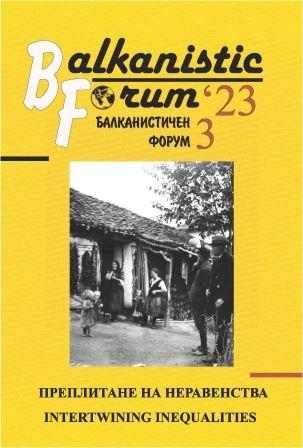Labour as a Right, Duty, Matter of Honour and Repression in State-Socialist Bulgaria
Labour as a Right, Duty, Matter of Honour and Repression in State-Socialist Bulgaria
Author(s): Ana LulevaSubject(s): History, Economic history, Oral history, Recent History (1900 till today), Special Historiographies:, Post-War period (1950 - 1989), History of Communism, Cold-War History
Published by: ЮГОЗАПАДЕН УНИВЕРСИТЕТ »НЕОФИТ РИЛСКИ«
Keywords: labour; coercion; labour camps; vernacular memory
Summary/Abstract: The idea of labour free from exploitation has a fundamental place in communist ideology and was a constant slogan in the public rhetoric of the ‘peoples’ democracies’. This paper aims to examine how labour is defined in the official discourse of state-socialist Bulgaria, how it is associated with the ideas of freedom, coercion, the new communist moral order; and how labour is used as a repressive measure for annihilation the political opponents immediately after the seizure the political power by the Fatherland Front on September 9th ,1944 until the closure of the labour camps in 1962. The juxtaposition of the official state discourse of free labour without exploitation of workers and the people’s accounts reveal whether the ideologemes imposed by the state-party propaganda were accepted and became part of the people's thinking and vernacular memory. My thesis is that the ideologemes of free labour are accepted or at least not problematized in the narratives of the majority of ‘ordinary’ people who lived during the communist regime without being subjected to political repression. The other group, however - the victims of such repression - challenges the regime's propaganda ideologemes of freedom and free labour under socialism, and do so by recounting their own lives and speaking from the undeniable position of witnesses. Thus, in terms of remembering labour, freedom and coercion, the generation born in the 1920s and 1930s is divided into two ‘generational units’ (using Mannheim’s term), that remain on irreconcilable opposing positions.
Journal: Балканистичен Форум
- Issue Year: 32/2023
- Issue No: 3
- Page Range: 9-25
- Page Count: 17
- Language: English
- Content File-PDF

